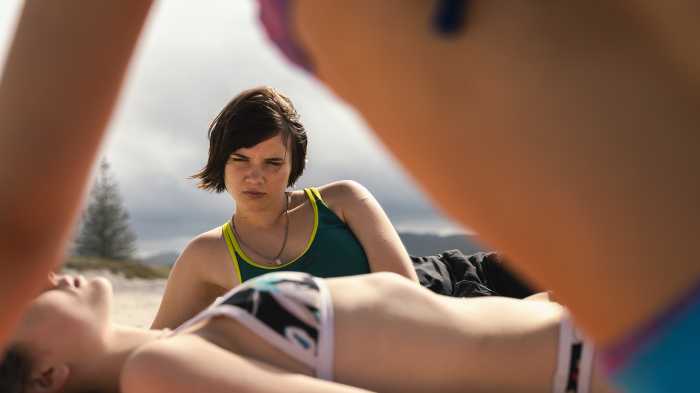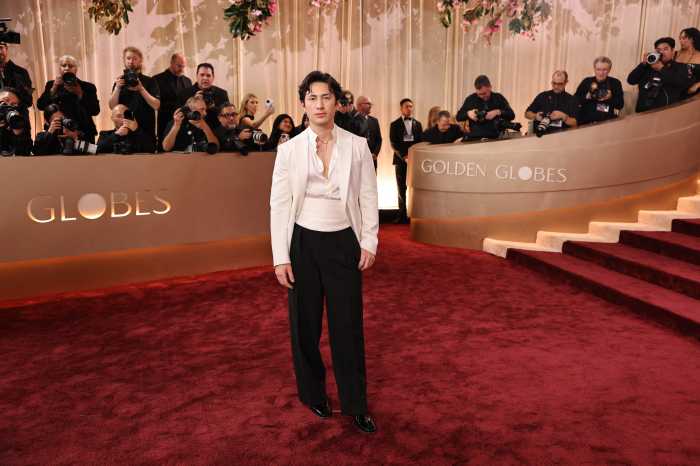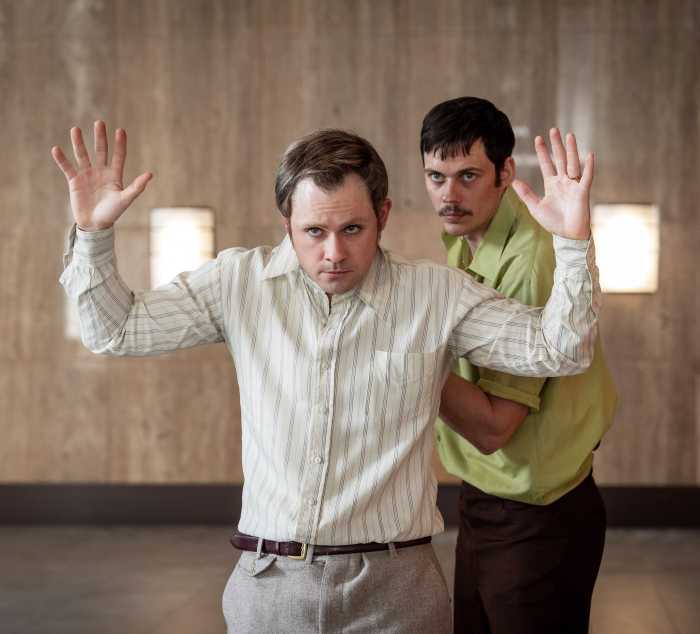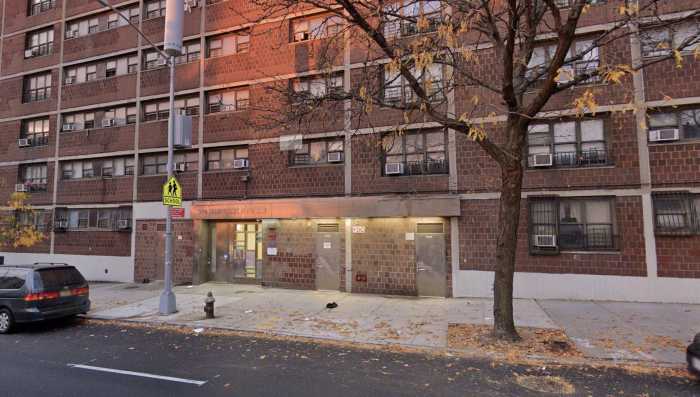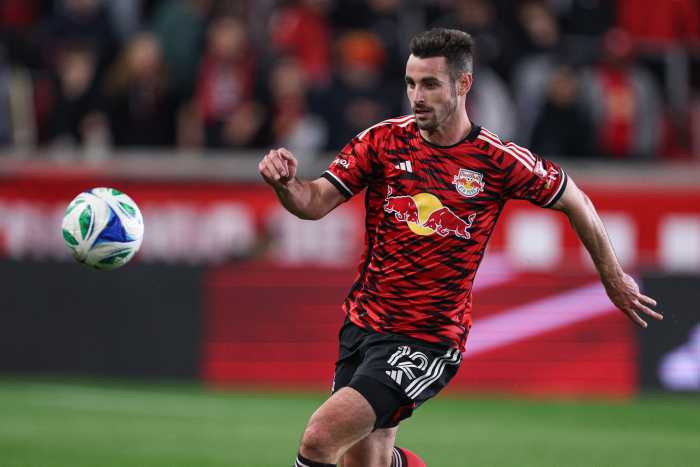Pro wresting has long had strong queer visibility — and not just because of its campy characters. There are several LGBTQ wrestlers active in the ring right now, including Anthony Bowens and trans superstar Nyla Rose.
The fabulous new documentary, “Out in the Ring,” by queer filmmaker Ry Levey, lovingly traces the history of LGBTQ representation in wrestling as well as the controversies about sexuality and issues regarding the diversity and inclusion of LGBTQ people in the sport. The film recounts the history of legends like Pat Patterson and Susan “Tex” Green, as well as tragedies like Chris Kanyon, and the out and proud wrestlers of today, trans wrestler, Dark Sheik, Effy, and Mike Parrow.
Gay City News spoke with director Ry Levey and pro wrestler Mike Parrow about their new film.
Ry, how did you research the history and find subjects?
Ry Levey: Wrestling was part of my childhood. When I decided I wanted to make my first feature, it made sense to look at something I had a genuine affection for through a queer lens. In 2015, I explored who was gay in wrestling. I heard rumors about Pat Patterson. The first out wrestler I met in person was Sonny Kiss. I saw Sonny in the ring being affectionate with another male wrestler, so it became about finding other out wrestlers. The narrative was: what is this hidden history? Then Charlie Morgan comes out in the summer of 2017. Scott McEwan was accessible. Then Mike Parrow came out. And someone told me about Effy. And then Pollo Del Mar told me Austin Idol was his first crush. By 2022, there was an explosion of queer representation in pro wrestling. It wasn’t just WWE, it was Effy and Parrow doing independent shows like Effy’s Big Gay Brunch.
What I admire about your film is that you focus on the people, not the sport, and are very inclusive. Can you discuss that approach?
Ry Levey: I wanted to make a film for people who had no idea about wrestling. These stories of struggle and finding community are universal. This is a film about humanity and trying to find a place. I knew at the heart of this that wrestlers are performers. I’m a white queer man and I’d do a disservice if I didn’t reflect the diversity of wrestling. Of all the sports, wrestling is head and shoulders above major televised sports that has the most out gay athletes.
What do you think the appeal of wrestling is for LGBTQ folks?
Ry Levey: It’s theater. It’s flamboyant. It’s camp. We love storylines and costumes, and wrestling has all that. It’s men and women rolling around in their underwear as one interviewee in the film says. There is a sexual component to it. It was promoted as hypermasculine, with all these macho guys, and women have to be feminized. But people like Parrow and Effy take this and start running their own events. They created safe spaces for wrestling fans who think it’s hot, campy, and crazy.
Mike Parrow: Most of the queer community doesn’t know about wrestling. Wrestling has alienated its queer fans, even though it is very homoerotic. Before I came out, I didn’t realize any of that, but these last six years, I’ve learned that the reason we have more gay fans coming to wrestling is because they are seeing representation. I am the gay wrestler I needed to see when I was young. I don’t represent every gay wrestler. It took me a while to realize that I don’t have the weight of the whole community on me. And doing that has brought more queer fans.
Mike, you talk eloquently in the film about undergoing conversion therapy and suicidal thoughts and the difficulties of living a double life. You also claim you wrestled better after coming out. Can you discuss that?
Mike Parrow: The first time any athlete or kid hears the word “gay,” it’s derogatory. It’s meant to tear you down and make you feel weak. So, you start a sports career hiding something. How are you supposed to be the best athlete or perform at the best of your ability if people find out something about you and will take that away? How many athletes could be the biggest star, but if they tell people they are gay, they will be punished for it?
What I learned about coming out and being more masculine than feminine is that I break stereotypes. For our straight counterparts, it is easier to accept feminine gay men than masculine gay men in this field of hypermasculinity. Me being masculine hurts their perception of being a male. I challenge a belief system.
What observations do you have about queer representation in wrestling? The film shows controversies like Chuck and Billy, who faked being gay, Goldust, as well as, the tag team Golden Lovers, Finn Bálor, and more. Does it help or hurt to throw out mixed messages?
Mike Parrow: It’s gaybaiting. Because we don’t have representation, we have to take what is given to us, and we fall hook, line, and sinker every time. That’s not a way to move forward. Finn is an ally. Golden Lovers are both straight and they, along with Chuck and Billy, are allies. We are trying to fight for equality. If I pitch an idea because I am a gay man, they get mad at me because it’s not their straight idea of what they want to portray gay as. They see us now, but they don’t want to see us. They know we exist, but even in the political world, they want it to go back to “Don’t Ask Don’t Tell.” My major problem is we have no one in the room speaking for us. There is no gay representation backstage. There are no gay writers or producers. It’s a room full of straight individuals trying to figure out a culture. We still have long way to go. It is better, but we need more allies.
How has coming out changed your career?
Mike Parrow: If I didn’t come out, I would probably have been hired somewhere, and probably fired. Now there is a faction of queer people. We are the most popular thing on every independent show. We have Effy’s Big Gay Brunch. I feel comfortable in the locker room. It’s all worth it. Seeing kids come up to me and thank me is a weird feeling. They look at you for coming out to allow them to be who they are in the ring.
What does it mean for you to be “out in the ring,” to quote the film’s title?
When people ask me, “What do you do in the ring that is gay?” I say, “I beat you up. I’m gay, and I’m doing it.” We did “Fear the Gay Agenda.” It was a “Last Daddy Standing” match. It was super violent, and super bloody and had queer individuals in a death match setting. We’re not just gay, we are death match hard core wrestlers. People are showing up and the show created its own superstars and universe.
“Out in the Ring” | Directed by Ry Levey | Premiering November 15 on Fuse TV | Distributed by RBL Films


